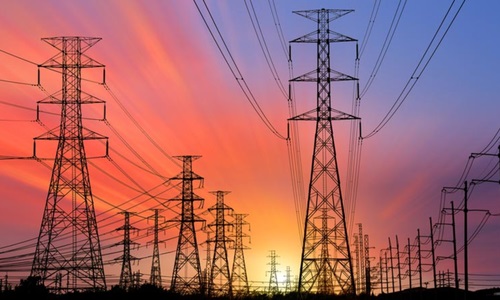The White Paper slams the erstwhile UPA government for the policy paralysis that resulted in large scale power shortages in the country and a 10-year setback for the telecom sector.
"The UPA government will always be remembered for the largest power outage in our history, in July 2012, leaving 62 crore people in darkness and putting national security at risk," the paper states.
Such darkness engulfed the nation, even as more than 24,000 MW of generation capacity lay idle due to a lack of fuels like coal and gas.
The entire sector reached a vicious cycle of inaction and policy paralysis with surplus generation capacity and massive unutilised investments at one end while large power cuts for the consumer on the other end, it asserts.
"When our government came to power in 2014, as many as two-thirds of coal-based power plants (66 out of 100 coal plants tracked by Central Electricity Authority) had critical coal stocks, meaning less than seven days of coal stock. This uncertainty was aggravating the overall power shortage. Villages used to get electricity for about 12 hours a day. Farmers used to get for a much lesser duration, thereby not being able to irrigate their crops. The inter-regional transmission lines were also highly inadequate," the White Paper states.
It also points out that the electricity shortages under the UPA government were repeatedly pointed out by international agencies. In its World Development Report 2008, the World Bank noted: "With 55-60 per cent of India's irrigated land supplied by groundwater, electricity for tubewell pumps is an important input… the quality of service is poor because of erratic and limited supply and voltage fluctuations, which can result in crop losses from forgone irrigation and damaged pumping equipment."
The World Bank again noted in Global Economic Prospects, June 2012, "Growth in India was particularly weak due to monetary policy tightening, stalled reforms, electricity shortage which along with fiscal and inflation concerns, cut into investment activity."
The paper asserts that India's telecom sector lost a precious decade due to the 2G scam and policy paralysis.
In the UPA regime, the process of allocation of spectrum lacked transparency and was frequently misused in the years leading up to 2008-09, which resulted in the "2G scam" and started the problems that finally caused a distress situation in the sector.
In the years following 2010, virtually no or little spectrum could be allocated to the operators, leading to a slowing down of the growth of the telecom industry.




Manipur Police arrest 11 militants, recover large cache of arms, ammunition
The Manipur Police arrested 11 militants belonging to various banned outfits and recovered a large cache of arms and ammunition during the past 24 hours, officials said here on Friday.
PM Modi unveils 21-point action plan at 6th BIMSTEC Summit
Prime Minister Narendra Modi on Friday presented a comprehensive 21-point action plan during the sixth BIMSTEC Summit in Bangkok, laying out an ambitious road map for cooperation across diverse sectors.
ED raids multiple premises of 'Empuraan' producer Gokulam Gopalan
Amid the controversy surrounding Malayalam film ‘Empuraan’ starring superstar Mohanlal, the Enforcement Directorate (ED) on Friday conducted raids at multiple premises linked to film’s producer Gokulam Gopalan.
SC declines PIL seeking restriction of social media platforms for kids below 13 years
The Supreme Court on Friday refused to entertain a public interest litigation (PIL) seeking urgent judicial intervention to regulate access to social media platforms for children below 13 years of age.
BIMSTEC Summit: PM Modi, Yunus meet amid strained ties
Prime Minister Narendra Modi on Friday held a bilateral meeting with Muhammad Yunus, Chief Advisor of Bangladeshi interim government, on the sidelines of the 6th BIMSTEC Summit in Bangkok.
Rupee strengthens against dollar amid Trump's reciprocal tariffs
The Indian rupee witnessed sharp gains on Friday at below 85 against dollar, as the dollar index and oil prices dropped sharply amid concerns over recession in the US economy after the reciprocal tariffs were announced.
Quad to send $20 million relief support to earthquake-ravaged Myanmar
Quad members Australia, India, Japan, and the United States on Friday collectively committed over $20 million in humanitarian assistance to support the relief efforts for the earthquake-devastated Myanmar.
'Waqf Bill will benefit Muslims, no threat to religious sites,' says Shahabuddin Razvi
Maulana Shahabuddin Razvi, the National President of All India Muslim Jamaat, expressed his support for the Waqf (Amendment) Bill, stating that it would significantly benefit Muslims and ensure the betterment of their socio-economic conditions.